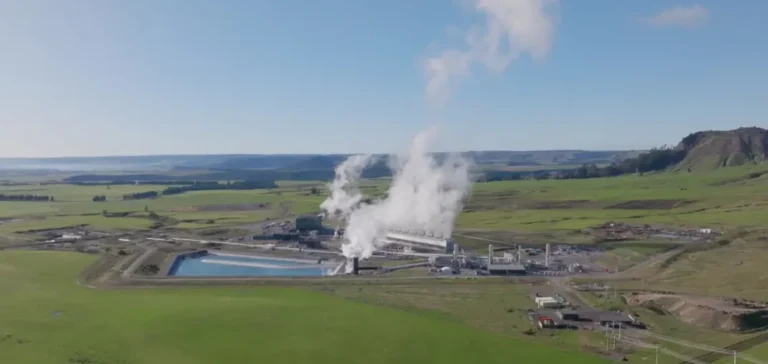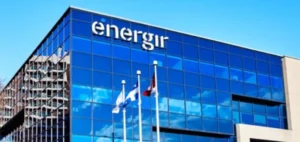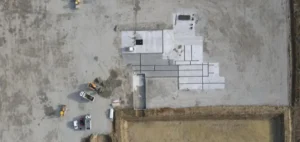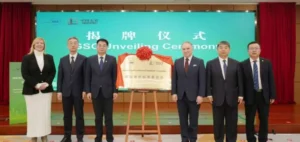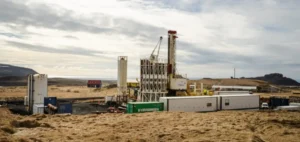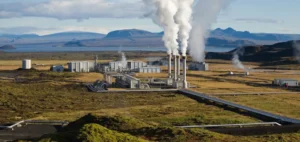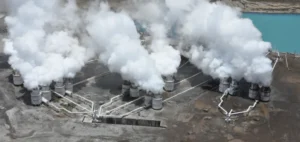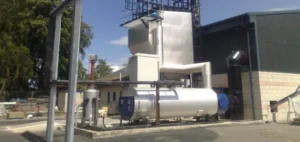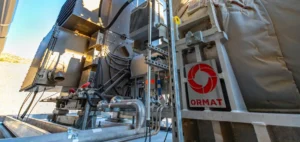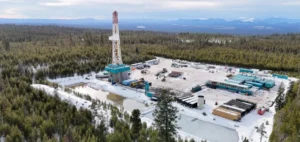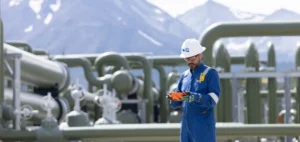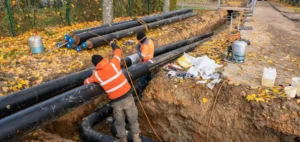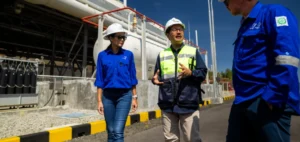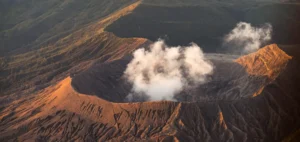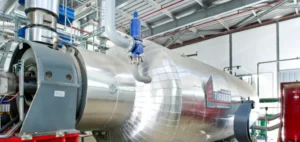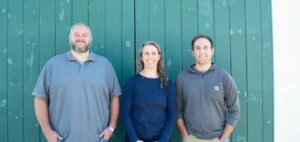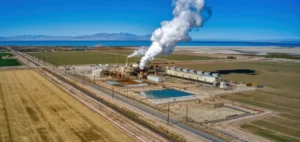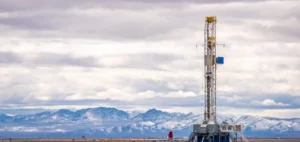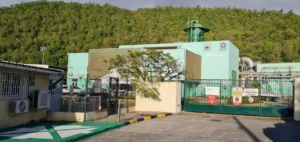German company Factor2 Energy has completed a $9.1mn fundraising round to advance its electricity production technology using stored carbon dioxide (CO₂) in deep reservoirs as a working fluid. This seed financing, led by At One Ventures, included contributions from High-Tech Gründerfonds (HTGF), Gründerfonds Ruhr, Verve Ventures and Siemens Energy Ventures.
Founded by three former Siemens Energy employees, Michael Wechsung, Joerg Strohschein and Felix Boehmer, the company plans to build a pilot plant to demonstrate the feasibility and scalability of its system. The technology relies on a closed cycle in which CO₂ injected into geological reservoirs naturally rises to the surface as it heats up, enabling continuous power generation using specifically designed turbines.
A solution harnessing CO₂’s thermal potential
Factor2 Energy’s process leverages the thermosiphon effect: when CO₂ heats up underground, its density decreases, triggering an upward circulation without the need for mechanical pumps. At the surface, the heat is converted into electricity before the gas is reinjected, forming a closed energy cycle. This system can deliver up to twice the energy output of traditional water-based geothermal cycles under similar geological conditions.
The concept also reduces upfront costs (CAPEX) by relying on standard drilling infrastructure developed by the oil and gas sector. Using CO₂ as the sole working fluid removes the need for complex binary systems or intermediate fluids, lowering operational complexity.
Deployment focused on CCS reservoirs
Factor2 Energy’s technology can be implemented in natural CO₂ reservoirs or carbon capture and storage (CCS) sites, which are generally unsuitable for conventional geothermal projects. This feature opens up new siting opportunities, particularly in shallower or moderate-temperature formations where traditional systems cannot operate.
The economic potential of this approach attracted investors in the fundraising round. Timo Bertsch, Investment Director at High-Tech Gründerfonds, said that Factor2’s innovation enables “the transformation of CCS sites into power-producing plants,” noting a successful demonstration in a complex geological environment.
Targeting rapid industrialisation
Factor2 Energy positions itself as a company combining carbon storage with low-carbon electricity generation by leveraging existing oil and gas infrastructure. According to Chief Executive Officer Felix Boehmer, the firm is particularly targeting operators with existing subsurface assets and drilling expertise.
The start-up now aims to accelerate the industrial development of its pilot plant. This stage seeks to validate the model at full scale, paving the way for medium-term commercialisation.


